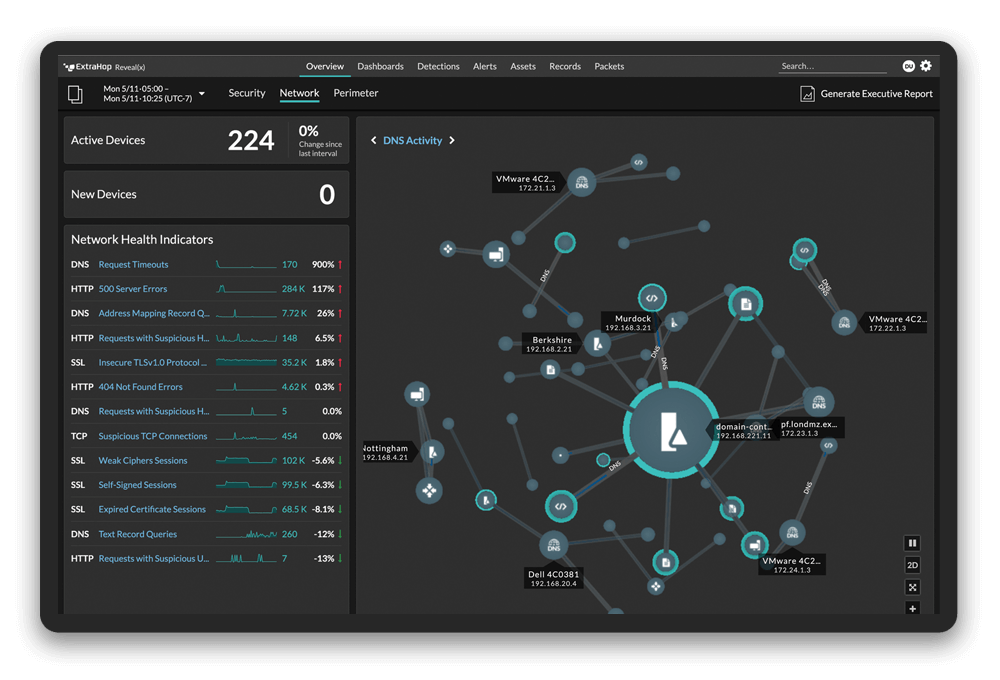October is Cybersecurity Awareness Month, and this year's theme, straight from the Cybersecurity and Infrastructure Security Agency (CISA) website, is 'See Yourself in Cyber.' While years past have revolved around the advanced threats that wreak havoc on businesses and keep IT professionals up at night, this year is all about the people who work hard to protect valuable data.
As a company that specializes in defending businesses from cyber attacks, we decided to reach out and ask some ExtraHop employees about how they came to work in cybersecurity. What we learned may help others who are looking for a new career or who might be curious about working in this ever-growing industry.
Finding the Right Fit
"I was at the [University of Washington] CS department's career fair talking to another company whose table happened to be next to ExtraHop," says senior software engineer Yvonne Chen. "After my conversation, an ExtraHop recruiter came up to me and said my background sounded interesting—would I like to chat? That was over six years ago!"
Career fairs are a great way for some people to learn about industries they may not have considered. For others, like software engineer Meg Kaye, they know exactly what they're looking for. "I saw ExtraHop at the HMC career fair and was excited because I am passionate about cybersecurity," Meg says. "Everyone I spoke to seemed happy and loved working there."
Others have found success networking on LinkedIn. The site allows people to showcase their talents and experience—which is how Kavita Sah found an internship at ExtraHop that led her to her role as a security engineer. "A recruiter reached out to my friend via LinkedIn and my friend told me about the opening," Kavita explains.
Honing Skills and Career Growth
Securing the job is one thing. In cybersecurity, it can take some time to feel comfortable—especially with the slew of acronyms and technical jargon. For software engineer Brianna Epstien, having support right away helped her get settled. "My team is super friendly and helpful, answering all the questions I have no matter how silly I might feel they are," she says. "It's really great getting so much guidance and mentoring as a new grad."
As one of the more tenured engineers on her team, Yvonne is now able to share her expertise. "We're a very open, collaborative team," she explains. "Regardless of what functional area you work on, you can reach out to anyone else with a question and be confident that they'll give you a thoughtful, thorough answer."
For many, it's important to know that the work is meaningful. "I really like being able to have my code be useful and impactful right out of the bat," Meg says. "ExtraHop employees are passionate about their work and are eager to help their team out!"
"My favorite part is working on the latest vulnerabilities," Kavita explains. "We work on securing our customers and saving their network from bad actors."
Striking A Balance
When you enjoy what you do, the days feel less monotonous. Younger generations have consistently stated that passion and flexibility are key factors in their job searches. "I appreciate how flexible we are with people moving between roles within the company," Yvonne explains. "I started off on our Framework team, dabbled a bit in our UI code, then decided that the work scope of the Middleware team was a better fit for my current interests."
Social outings can also bring teams closer together. For newer employees, it can be a great way to get to know your coworkers. "There are fun opportunities to meet others," Brianna continues, "like office happy hours, or new hire group chats, as well as plenty of social Zoom calls, whether those are for your team to hang out or to eat lunch with the other new people."
These passionate and talented employees are why ExtraHop was ranked as one of Built In's 2022 Best Places to Work. This honor is not something we take for granted.
Finding the right career fit can feel challenging, but it's not impossible. The job market continues to grow exponentially every year—especially in cybersecurity. Advanced threats are only becoming more advanced, which means we'll need even more people to help us combat whatever the future may throw at us.
